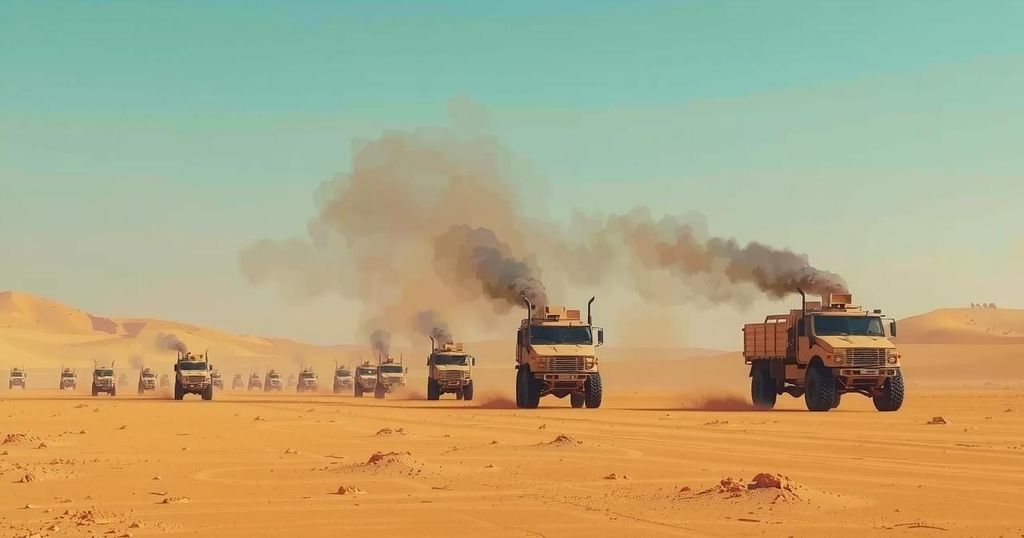World news
AFRICA, AFRICA CORPS, ASIA, ASSOCIATED PRESS, AZAWAD, BAMAKO, CHINA, CIVIL WAR, EUROPE/ASIA, KIDAL, KREMLIN - CONTROLLED AFRICAN CORPS, LYAMMOURI, MALI, MILITARY, MOHAMED MAOULOUD RAMADAN, MOROCCO - BASED POLICY CENTER FOR THE NEW SOUTH THINK TANK, NEW SOUTH THINK TANK, RID, RIDA LYAMMOURI, RUSSIA, TERRORISM, WAR
Fatima Khan
0 Comments
Clashes in Northern Mali Result in Deaths of Separatists and Soldiers
Recent clashes in northern Mali resulted in the deaths of 10 separatists and numerous casualties on the Malian side, according to conflicting reports. The armed Azawad separatist group claimed they killed many soldiers in an ambush of a military convoy. This violence reflects ongoing instability in the region, particularly as Russian oversight transitions amidst the withdrawal of the Wagner group.
In northern Mali, recent clashes between the Malian army and a separatist group have resulted in significant casualties. Official reports from the Malian army indicate the deaths of 10 separatists during a two-day conflict. The Azawad separatists, however, claim to have killed numerous Malian soldiers as well as members of a Kremlin-controlled military unit.
These altercations began Thursday in the Kidal region, following a military offensive. On Friday, a logistical convoy belonging to the Malian military experienced an ambush but managed to repel the attackers, according to the military’s statements.
The Azawad separatist movement has long sought independence for the region, clashing with local and international forces since well before a 2015 peace agreement, which has ultimately faltered. Spokesman Mohamed Maouloud Ramadan stated that, during the confrontation, they seized 12 trucks filled with essential supplies and military equipment, while also acknowledging the loss of three separatist fighters.
In videos shared by the separatists, military vehicles are seen ablaze, with armed individuals presenting themselves amid the chaos. The authenticity of these recordings remains unverified by independent sources.
Rida Lyammouri, an expert on the Sahel region, remarked on the operational challenges faced by military forces in difficult terrains such as Kidal. He noted, “It’s difficult to gather actionable intelligence to protect their convoys, and this gives a significant advantage to armed and jihadist groups.”
The conflict occurred shortly after the announcement that the Russian mercenary group Wagner, which had been assisting Malian authorities for over three years, would be withdrawing. However, the Africa Corps, under direct orders from the Russian defense ministry, is expected to remain in the region. U.S. officials estimate the presence of around 2,000 mercenaries in Mali, though it remains unclear how many are affiliated with Wagner and how many with the Africa Corps.
The clashes in Mali’s northern region exemplify ongoing tensions between the Malian army and separatist movements, underscoring significant operational difficulties in rugged terrains. As the Azawad separatists assert their strength and claim military successes, the involvement of foreign mercenaries adds another complex layer to the already troubled conflict. These developments reflect the shifting dynamics in Mali, especially in light of recent changes in foreign military support.
Original Source: www.newsday.com




Post Comment